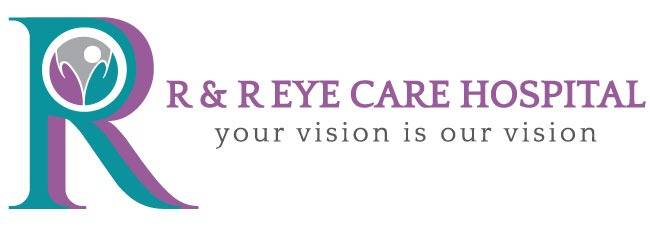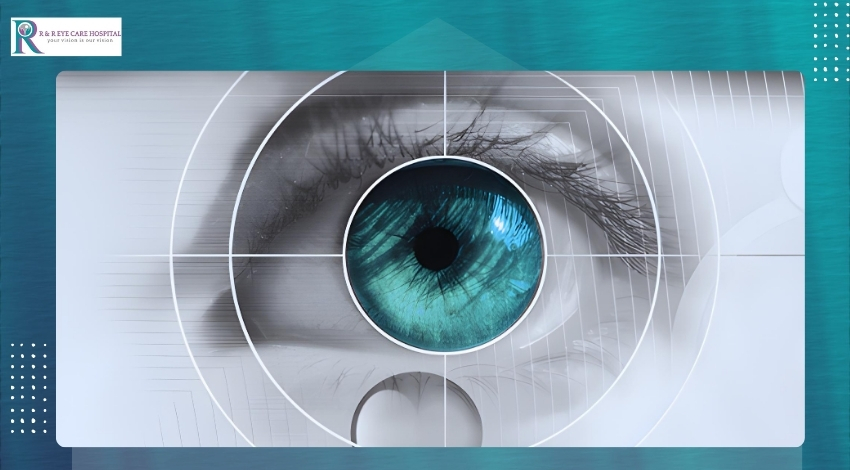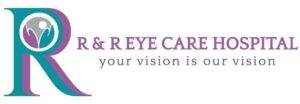Comprehensive Guide to Glaucoma: Early Detection and Treatment Options
Glaucoma, often referred to as the “silent thief of sight,” is a group of eye conditions that damage the optic nerve, potentially leading to irreversible vision loss. What makes glaucoma particularly concerning is that it often shows no symptoms in its early stages, making early detection critical to preserving vision.
At R & R Eye Care Hospital, we specialize in diagnosing and managing glaucoma to help our patients maintain their vision and quality of life. In this blog, we’ll explore what glaucoma is, the importance of early detection, and the treatment options available.
1. What is Glaucoma?
Glaucoma is a progressive condition caused by increased intraocular pressure (IOP) or other factors that damage the optic nerve. The optic nerve is responsible for transmitting visual information from the eye to the brain. When damaged, it can result in vision loss or blindness if left untreated.
Types of Glaucoma
- Open-Angle Glaucoma: The most common type, characterized by slow clogging of the eye’s drainage canals, leading to increased pressure.
- Angle-Closure Glaucoma: A less common but more severe form, where the drainage angle becomes blocked, causing a sudden rise in IOP.
- Normal-Tension Glaucoma: Optic nerve damage occurs despite normal IOP levels.
- Congenital Glaucoma: Present at birth, caused by abnormal eye development.
2. Why Early Detection is Crucial
a. Glaucoma is Often Asymptomatic
In its early stages, glaucoma typically has no noticeable symptoms. Vision loss usually begins with peripheral (side) vision, which may go unnoticed until significant damage occurs.
b. Irreversible Damage
Vision loss from glaucoma cannot be restored, but early intervention can prevent further damage.
c. High-Risk Groups
- People over 40 years of age.
- Individuals with a family history of glaucoma.
- Patients with diabetes or high blood pressure.
- Those with thin corneas or high intraocular pressure.
d. Regular Eye Exams
Comprehensive eye exams are the best way to detect glaucoma early. At R & R Eye Care Hospital, we recommend regular screenings, especially for high-risk individuals.
3. Symptoms of Glaucoma
While symptoms vary depending on the type, here are some common signs to watch for:
- Gradual loss of peripheral vision (open-angle glaucoma).
- Sudden, severe eye pain and blurred vision (angle-closure glaucoma).
- Halos around lights.
- Redness in the eyes.
- If you experience any of these symptoms, seek immediate medical attention.
4. Diagnostic Techniques for Glaucoma
At R & R Eye Care Hospital, we use advanced diagnostic tools to detect glaucoma:
- Tonometry: Measures intraocular pressure.
- Optical Coherence Tomography (OCT): Provides detailed images of the optic nerve and retina.
- Visual Field Testing: Assesses peripheral vision loss.
- Gonioscopy: Examines the drainage angle of the eye.
- Pachymetry: Measures corneal thickness, which can influence IOP readings.
5. Treatment Options for Glaucoma
While there is no cure for glaucoma, various treatments can slow or halt its progression:
a. Medications
- Eye Drops: The most common initial treatment, designed to reduce eye pressure by improving fluid drainage or reducing fluid production.
- Oral Medications: Used in more advanced cases to lower IOP.
b. Laser Therapy
- Selective Laser Trabeculoplasty (SLT): Improves fluid drainage in open-angle glaucoma.
- Laser Peripheral Iridotomy: Creates a small hole in the iris to relieve pressure in angle-closure glaucoma.
c. Surgery
- Trabeculectomy: Creates a new drainage pathway to lower IOP.
- Drainage Implants: A small device is inserted to facilitate fluid drainage.
- Minimally Invasive Glaucoma Surgery (MIGS): A newer option with fewer complications and quicker recovery.
6. Tips for Managing Glaucoma
a. Follow Your Treatment Plan
- Consistently use prescribed eye drops or medications as directed by your doctor.
b. Regular Eye Check-Ups
- Frequent monitoring ensures that treatment remains effective and adjustments can be made if necessary.
c. Maintain a Healthy Lifestyle
- Exercise regularly, eat a balanced diet rich in eye-healthy nutrients, and avoid smoking.
d. Protect Your Eyes
- Wear protective eyewear during activities that may pose a risk to your eyes.
7. Why Choose R & R Eye Care Hospital for Glaucoma Management?
At R & R Eye Care Hospital, we are dedicated to providing personalized and comprehensive care for glaucoma patients.
What Sets Us Apart?
- Advanced Technology: Cutting-edge diagnostic and treatment tools.
- Experienced Specialists: Highly skilled ophthalmologists with expertise in glaucoma management.
- Tailored Care: Individualized treatment plans to suit each patient’s unique needs.
- Ongoing Support: Compassionate care throughout your treatment journey.
8. Conclusion
Glaucoma is a serious condition, but with early detection and proper management, vision loss can be minimized or prevented. At R & R Eye Care Hospital, we’re committed to safeguarding your sight with the latest diagnostic tools and personalized treatment options.
Don’t wait for symptoms to appear—schedule your comprehensive eye exam today and take the first step in protecting your vision. Contact R & R Eye Care Hospital to learn more about our glaucoma services.




Leave A Comment